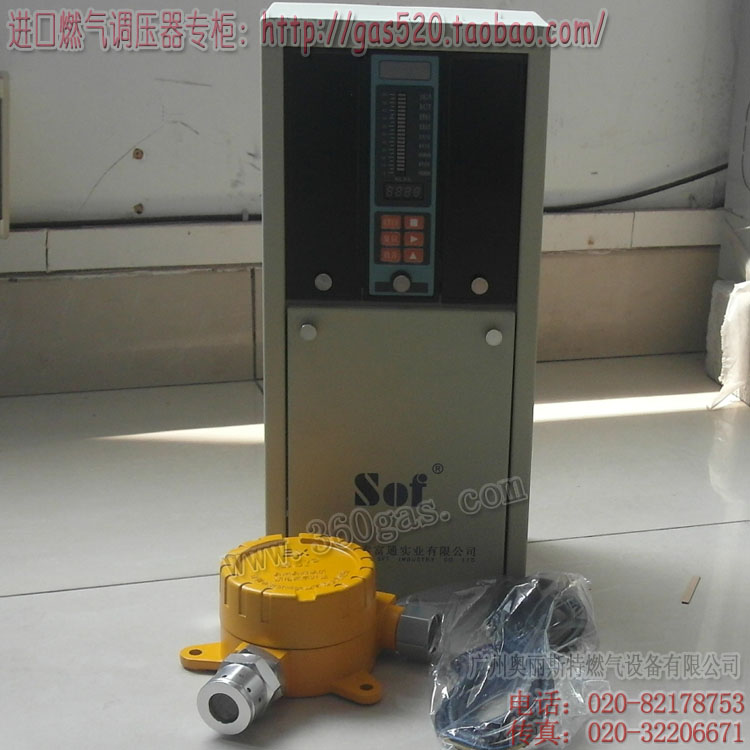位置:首页 > 燃气资讯 > ADB Funds Next Sta
ADB Funds Next Stage of China’s Push for Natural Gas Fueled Transportation
浏览次数 793 , 日期 2014-12-31 , 燃气设备 加入收藏
600 compressed natural gas (CNG) stations, 200 liquefied natural gas (LNG) refueling stations, 20 LNG filling stations for river vessels by 2018
The Asian Development Bank (ADB) has signed loans of up to $450 million equivalent to help the People’s Republic of China (PRC) scale up its use of natural gas for transport to curb fast-rising emissions from automobiles and river freight. The loan is extended to China Gas Holdings Limited (CGH) for the Natural Gas for Land and River Transportation Project (People’s Republic of China), Project Number: 48281-001.
“Traffic volumes have been rising fast in the PRC, resulting in air pollution problems not just here but also in other parts of Asia,” said Hisaka Kimura, Head of Private Sector Infrastructure Finance, East Asia Unit, in ADB’s Private Sector Operations Department. “Helping motor vehicles, as well as vessels that ply inland waterways, switch from diesel to natural gas will mitigate air pollution, fine particulate matter [PM2.5] in particular.”
The ADB loans will be extended to CGH to build and operate up to 600 compressed natural gas (CNG) and 200 liquefied natural gas (LNG) refueling stations along major land transport corridors, and a further 20 LNG filling stations for river vessels by 2018.
CNG is ideal for short-haul travel while LNG is more efficient for heavy duty long-distance highway and inland waterways networks. Further, the PRC has the world’s largest inland waterway transport network, which represents great potential for further greening transportation, using LNG.
ADB’s assistance comprises a $150 million equivalent dual-currency loan in dollars and Chinese yuan, and a complementary $300 million equivalent dollar-yuan loan from participating commercial banks.
The assistance will also support the PRC’s drive to diversify its energy mix. The country has abundant undeveloped natural gas reserves, estimated at about 3.1 trillion cubic meters. Yet, PRC is one of the lowest per capita gas consumption countries globally.
While the PRC’s natural gas supplies are increasing, demand remains unmet. ADB’s support is expected to encourage greater private sector participation in this sector and address bottlenecks in mainstreaming gas use for transportation, particularly in long-distance transport corridors that cross municipal and provincial boundaries.
Project Development Impact, Outcome, and Outputs
The Report and Recommendation of the ADB President, Mr. Takehiko Nakao, to the Board of Directors states the following project specifics:
Impact: Successful implementation of the project and deployment of natural gas for multimodal transportation will diversify the energy mix in the PRC by increasing the proportion of natural gas, and increase the availability of natural gas as a transportation fuel in the country:
Proportion of natural gas in the energy mix increases to 15.0% by 2025 from 5.9% in 2013
All major highways and inland waterways have access to natural gas stations by 2025
Outcome: The outcome will be development of a commercially viable low-carbon transport fuel system. The project is expected to generate new jobs and reduce greenhouse gas emissions while also acting as a catalyst for private sector participation in the sector:
10,000 new long-distance trucks operate under wholesale contracts for LNG with CGH by 2020
350 new vessels convert engines to LNG by 2020
Avoided greenhouse gas emissions are approximately 2 million tons per annum from 2020
8,200 full-time equivalent jobs are generated by fuel stations by 2020
Output: The expected outputs include the increased availability of CNG and LNG stations meeting safeguards standards. The project will involve the construction and operation of refueling stations for use by land-based vehicles and LNG refueling stations for IWT vessel use during 2015–2018, all of which will comply with ADB safeguard standards and technical eligibility criteria:
600 new CNG stations for land transport built by 2018
200 new LNG stations for vehicles and 20 new LNG stations for vessels built by 2018
CGH’s environment and safeguards systems comply with ADB or the PRC policies
ADB has funded other natural gas transportation projects in China
2013: ADB earmarked $275 million for up to five top-tier financial leasing companies in PRC to finance leased buses that run on cleaner fuel – such as compressed natural gas (CNG) and liquefied natural gas (LNG) – as well as electric and hybrid buses.
2009: A $150 million loan was approved for Lanzhou, the capital of Gansu Province, to help set up a sustainable urban transport system that will reduce transport time and costs and cut harmful emissions of greenhouse gases. The centerpiece was the establishment of a CNG-fueled bus rapid transit system.
ADB, based in Manila, is dedicated to reducing poverty in Asia and the Pacific through inclusive economic growth, environmentally sustainable growth, and regional integration. Established in 1966, it is owned by 67 members—48 from the region. In 2013, ADB assistance totaled $21.0 billion, including cofinancing of $6.6 billion.
美国Fisher费希尔调压阀,627-496管道燃气减压阀,627-496高压调压阀
The Asian Development Bank (ADB) has signed loans of up to $450 million equivalent to help the People’s Republic of China (PRC) scale up its use of natural gas for transport to curb fast-rising emissions from automobiles and river freight. The loan is extended to China Gas Holdings Limited (CGH) for the Natural Gas for Land and River Transportation Project (People’s Republic of China), Project Number: 48281-001.
“Traffic volumes have been rising fast in the PRC, resulting in air pollution problems not just here but also in other parts of Asia,” said Hisaka Kimura, Head of Private Sector Infrastructure Finance, East Asia Unit, in ADB’s Private Sector Operations Department. “Helping motor vehicles, as well as vessels that ply inland waterways, switch from diesel to natural gas will mitigate air pollution, fine particulate matter [PM2.5] in particular.”
The ADB loans will be extended to CGH to build and operate up to 600 compressed natural gas (CNG) and 200 liquefied natural gas (LNG) refueling stations along major land transport corridors, and a further 20 LNG filling stations for river vessels by 2018.
CNG is ideal for short-haul travel while LNG is more efficient for heavy duty long-distance highway and inland waterways networks. Further, the PRC has the world’s largest inland waterway transport network, which represents great potential for further greening transportation, using LNG.
ADB’s assistance comprises a $150 million equivalent dual-currency loan in dollars and Chinese yuan, and a complementary $300 million equivalent dollar-yuan loan from participating commercial banks.
The assistance will also support the PRC’s drive to diversify its energy mix. The country has abundant undeveloped natural gas reserves, estimated at about 3.1 trillion cubic meters. Yet, PRC is one of the lowest per capita gas consumption countries globally.
While the PRC’s natural gas supplies are increasing, demand remains unmet. ADB’s support is expected to encourage greater private sector participation in this sector and address bottlenecks in mainstreaming gas use for transportation, particularly in long-distance transport corridors that cross municipal and provincial boundaries.
Project Development Impact, Outcome, and Outputs
The Report and Recommendation of the ADB President, Mr. Takehiko Nakao, to the Board of Directors states the following project specifics:
Impact: Successful implementation of the project and deployment of natural gas for multimodal transportation will diversify the energy mix in the PRC by increasing the proportion of natural gas, and increase the availability of natural gas as a transportation fuel in the country:
Proportion of natural gas in the energy mix increases to 15.0% by 2025 from 5.9% in 2013
All major highways and inland waterways have access to natural gas stations by 2025
Outcome: The outcome will be development of a commercially viable low-carbon transport fuel system. The project is expected to generate new jobs and reduce greenhouse gas emissions while also acting as a catalyst for private sector participation in the sector:
10,000 new long-distance trucks operate under wholesale contracts for LNG with CGH by 2020
350 new vessels convert engines to LNG by 2020
Avoided greenhouse gas emissions are approximately 2 million tons per annum from 2020
8,200 full-time equivalent jobs are generated by fuel stations by 2020
Output: The expected outputs include the increased availability of CNG and LNG stations meeting safeguards standards. The project will involve the construction and operation of refueling stations for use by land-based vehicles and LNG refueling stations for IWT vessel use during 2015–2018, all of which will comply with ADB safeguard standards and technical eligibility criteria:
600 new CNG stations for land transport built by 2018
200 new LNG stations for vehicles and 20 new LNG stations for vessels built by 2018
CGH’s environment and safeguards systems comply with ADB or the PRC policies
ADB has funded other natural gas transportation projects in China
2013: ADB earmarked $275 million for up to five top-tier financial leasing companies in PRC to finance leased buses that run on cleaner fuel – such as compressed natural gas (CNG) and liquefied natural gas (LNG) – as well as electric and hybrid buses.
2009: A $150 million loan was approved for Lanzhou, the capital of Gansu Province, to help set up a sustainable urban transport system that will reduce transport time and costs and cut harmful emissions of greenhouse gases. The centerpiece was the establishment of a CNG-fueled bus rapid transit system.
ADB, based in Manila, is dedicated to reducing poverty in Asia and the Pacific through inclusive economic growth, environmentally sustainable growth, and regional integration. Established in 1966, it is owned by 67 members—48 from the region. In 2013, ADB assistance totaled $21.0 billion, including cofinancing of $6.6 billion.








